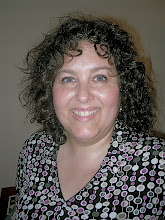Counselling is much more than this. One of the most important things I think is worth making clients aware of is that
Counsellors and psychotherapists do not give you answers.
We live in a world where there seems to be an instant answer for everything. Feel unhappy? Have a haircut, go out with friends, have a massage. Feel confused about what you want to do with your life? Take an evening class, speak with friends who’re living the life you want, do voluntary work. For this straightforward approach you may find coaching very useful.
You’ll see from this entry that coaching is directive, instructive and about training you. This can be very useful indeed. But it’s not counselling.
A second aspect of counselling that you should be aware of is that
You may feel worse before you feel better.
Coming to counselling means that you are ready to explore, in depth, parts of your life that you feel unhappy about. You will spend some time exploring your pain and that is upsetting. Counselling does not entail, as some critics suggest, wallowing endlessly in misery but it is a journey into and through upset and sometimes trauma. This is where friends and family become less useful because they will feel distressed themselves as they become involved in your distress. Understandably, they will want to limit your distress. Counsellors will let you be the judge of your own limits. It’s up to you how much you want to explore.
The third important aspect of counselling, and perhaps the single most important is
This process is about taking back control of your own life, in your own way.
You can talk about whatever you want for as many sessions as you like. The counsellor will not tell you when you’ve said enough. It is up to you to decide what you want to talk about, and for how long. You are in control of the session.
If you want to spend a long time exploring your past, difficulties with the present, where you want to go on holiday or the weather then that’s what the session will be about. The counsellor will not tell you what to talk about, has no investment in changing the way in which you think about the past, present or future; instead, the process of being listened and responded to very carefully will help you discern for yourself what is important for you.
You are the expert in your own life, and whilst this sounds comforting many of us actually want an expert to tell us how to live better. No counsellor worth their qualification will offer that. Your family and friends may believe that if you got a higher paying job or took a sabbatical, give up your lover or get married then your life will improve. But if you don’t believe it then it won’t work for you.
Reclaiming that personal authority for yourself is a surprisingly complex process. You have to overcome decades of being told how to think, behave, and live up to other people’s expectations, whether that’s family, the media, or your peer group. Being told how to think and live sounds oppressive but most of us are very comfortable with it, until we find that someone else’s idea of a good life doesn’t fit us. The counselling relationship - where the counsellor truly trusts you to find your own way through your own life - is unlike any other you will have experienced and takes time to get used to. Once you begin to deeply trust your own wisdom you have more solid ground from which to make decisions to help you live in a way that truly suits you. Sounds straightforward – and it is – but that sincere trust in oneself takes time to build, and can only be facilitated by unconditional trust from your counsellor rather than well meaning advice.

Hi Dear,
ReplyDeleteThanks for sharing this great blog with us. It is very interesting. Click to know more Children counselling.